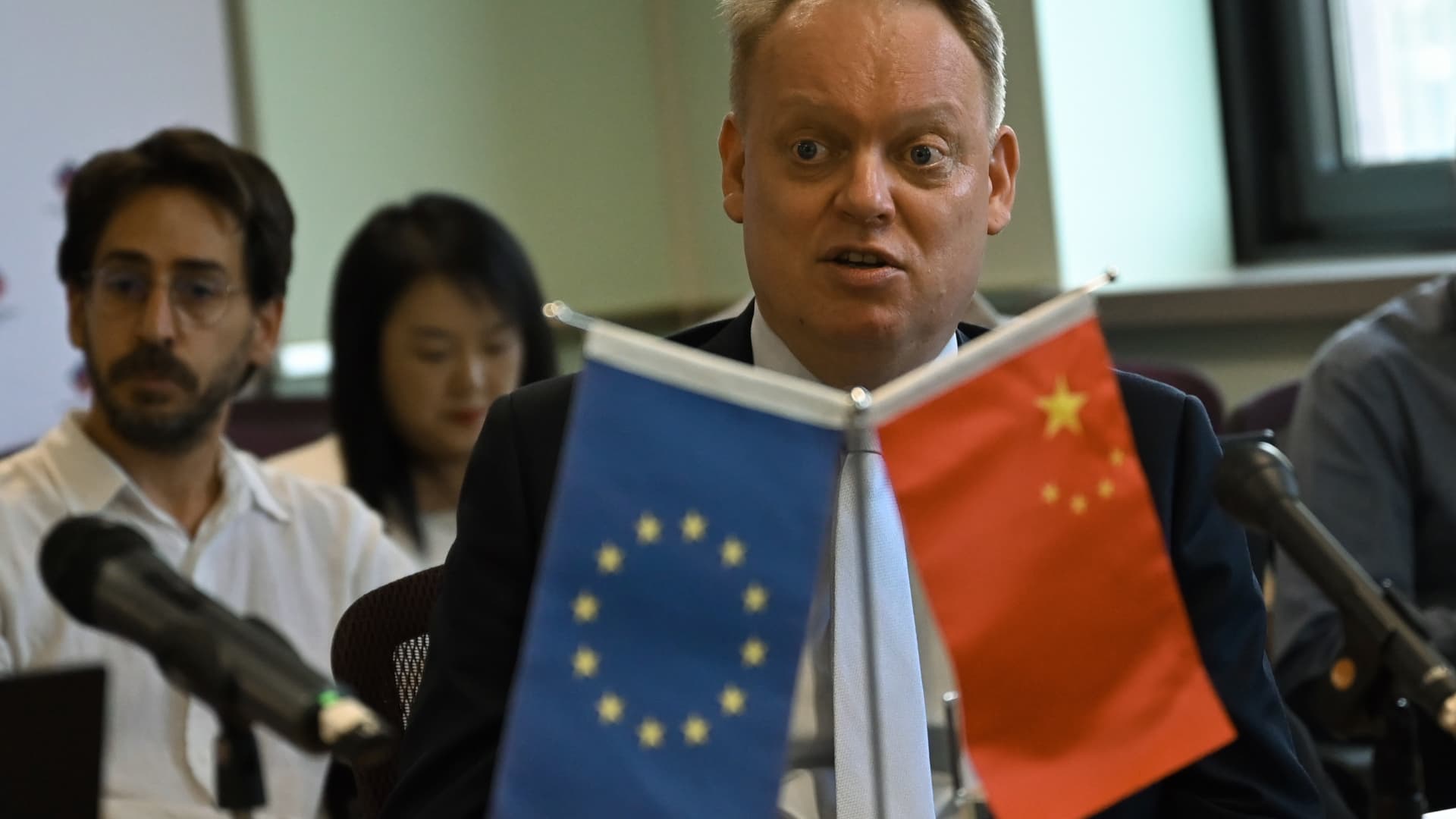China’s relationship with the European Union hangs in the balance, with the EU’s trade chief urging Beijing to prioritize openness and fairness. Valdis Dombrovskis, executive vice president of the European Commission, delivered a speech at Tsinghua University in Beijing on Monday, emphasizing the importance of mutually beneficial relations based on open, fair trade and cooperation on global challenges. Dombrovskis also warned of the consequences of moving in a direction that weakens the shared benefits and limits opportunities for both sides.
This strong language from European officials comes in response to recent data revealing the EU’s trade deficit of nearly 400 billion euros with China in 2022. Dombrovskis highlighted this issue during his trip to China, emphasizing that although the EU recorded a record bilateral trade of 865 billion euros with China last year, the trade relationship is heavily imbalanced.
Interestingly, Dombrovskis’ visit coincided with the European Commission’s initiation of an investigation into Chinese subsidies to electric car manufacturers. While the EU argues that these subsidies distort the European market, Beijing authorities have criticized the EU’s “protectionist” views. Dombrovskis aims to clarify to his Chinese counterparts that the investigation seeks to establish fairer trading practices and does not indicate an intention to sever ties with Beijing.
The EU has adopted the concept of de-risking from China as a means to navigate its trade relationship without completely decoupling, unlike the more aggressive stance taken by the United States. Dombrovskis emphasized this approach during his speech in Shanghai, explaining that de-risking involves minimizing strategic dependencies while maintaining open strategic autonomy in a proportionate and targeted manner.
De-risking, not decoupling
European officials have made it clear that their aim is not to completely decouple from China, and they have been urging the United States to adopt a similar approach. In a joint statement, the Group of Seven (G7) countries recognized the need to de-risk from Beijing. However, Jens Eskelund, president of the European Union Chamber of Commerce in China, voiced concerns about Europe’s increasing dependence on China, suggesting that it is more like China decoupling from Europe. He pointed out that China has been de-risking itself for decades.
One specific area where the EU is seeking to de-risk is the electric vehicle (EV) sector, as the share of China-made EVs entering the European market has been rising. European officials predict that this share could reach 15% by 2025, which is significant considering the EU’s goal to phase out the sale of new diesel and petrol cars by 2035. Eskelund also highlighted the strong presence of European automakers in China, with factories and up to 95% of their production value chain located there.
Amid concerns about potential retaliation from China, Eskelund emphasized that it is in the best interests of both Europe and Beijing to resolve the issue through dialogue rather than imposing punitive tariffs. He called for a mature conversation to address the barriers that exist between the two sides.
— CNBC’s Lee Ying Shan contributed to this report
Denial of responsibility! Vigour Times is an automatic aggregator of Global media. In each content, the hyperlink to the primary source is specified. All trademarks belong to their rightful owners, and all materials to their authors. For any complaint, please reach us at – [email protected]. We will take necessary action within 24 hours.


